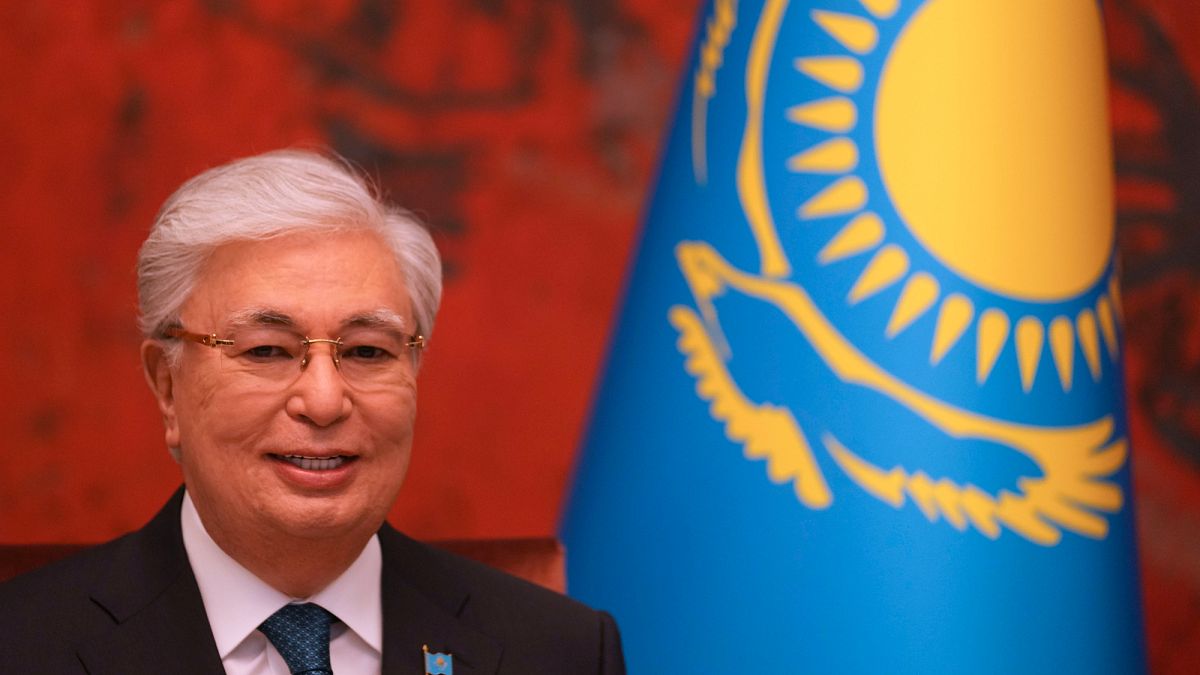By Galiya Khassenkhanova
Published on
Kazakhstan President Kassym-Jomart Tokayev proposed to switch from a two-chamber parliament system to a one-chamber system by eliminating the Senate.
“This reform of the highest representative authority will be a logical continuation of all previous reforms, including the reform of presidential power,” he said.
The proposition was voiced during Tokayev’s annual state-of-the-nation address, which outlined the main issues and tasks the Kazakh government will have to work on until next September.
The president suggested that it will take a year to discuss the shift and work out various details, after which the country should hold a nationwide referendum to vote on the proposed changes in 2027.
“I have said more than once that all issues of crucial importance to the state will be resolved only with the consent of the people,” he highlighted.
Tokayev added that the new parliament composition should be elected solely based on party lists.
What does this mean for the country?
Right now, Kazakhstan’s Parliament has two chambers. The lower one is called the Mazhilis, and the upper one is the Senate.
Both chambers held snap elections in 2023 following the 2022 national referendum, which decreased the number of lawmakers in each chamber. If the new referendum passes, Kazakhstan will have to hold snap parliamentary elections again.
The proposed change in the parliamentary system in Kazakhstan will probably expedite the law-making process and might prove to be economical as well. But largely, it means a change in the power dynamics.
In Kazakhstan, the current order of succession in case of the president’s absence or inability to remain in office is: the speaker of the Senate, followed by the chair of the Mazhilis, and then the prime minister. A unicameral parliament will shorten this pool.
Political analyst Dosym Satpayev believes that the decision is meant to prepare the ground for the next president.
“Tokayev’s current proposal is most likely not aimed at democratising the parliamentary system itself, but rather as preparation for a new transfer of power, where the speaker of the unicameral parliament automatically increases his constitutional status in the list of those who stand next after the president,” he said.
For some, a concerning part of the announcement was the decision to use the party lists to determine the composition of the parliament, which means no individual candidates.
Experts say that this will virtually place all the power in the hands of one party. A problem here is the overarching dominance of the Amanat party, a party that has consistently won the most votes in all elections.
Both former president Nursultan Nazarbayev and President Tokayev have been leaders of this party. However, after the 2022 referendum, the president is no longer allowed to be a party member while performing his presidential duties.
Nevertheless, a party-list-based election was only a proposition and individual candidates may still retain their electability. This is the kind of kinks the Kazakh government will have to work out in the following year.
What else did Tokayev outline?
In his wide-ranging address, Tokayev announced the creation of a Ministry of Artificial Intelligence and Digital Development, underscoring the need to integrate AI across all economic sectors.
He tasked the government with rethinking investment policies to shift focus from raw materials toward manufacturing, while improving coordination in attracting foreign capital.
The Committee for the Return of Illegal Assets has been renamed the Committee for the Protection of Investor Rights, which Tokayev credited with recovering 850 billion tenge (€1.4 billion), reinvested into schools, hospitals, and key infrastructure.
Financial reforms will also be a priority. By the end of 2025, a new banking law should be adopted to expand competition, attract new players, and develop digital assets.
Tokayev called for scaling up the digital tenge and proposed establishing a State Fund of Digital Assets to build a strategic reserve of cryptocurrencies and blockchain-based instruments.
Joint government–National Bank measures will also focus on taming high inflation, which undermines income growth.
Kazakhstan also plans a major overhaul of its agricultural sector, emphasising efficiency, innovation and reduced import dependence
Transport and logistics remain central to Kazakhstan’s transit ambitions. With over 1 billion tonnes of cargo moved annually, Tokayev called for integration of the North–South, East–West, and Trans-Caspian corridors, wider use of digital platforms, and stronger container shipping.
The president ordered the government to grant special status to the newly formed city of Alatau, which is set to become Central Asia’s first digital city, utilising smart urban technologies that enable the payment for goods and services with cryptocurrencies.
Finally, Tokayev stressed modernisation of the energy sector, particularly the acceleration of building the second and third nuclear power plants, to ensure long-term sustainability.

